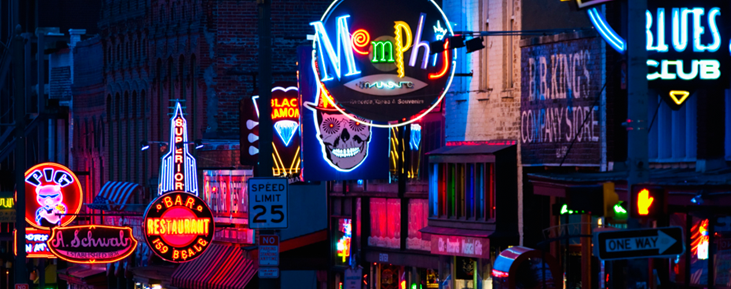
Several times in the past week or so, I’ve been called upon to explain why I support the continuation of the Memphis Music Commission, so I have decided to explain and to do so in a thorough manner.
First, I am concerned about a pattern of loss of our cultural icons, institutions, and events in the city of Memphis. The effort to abolish the Music Commission comes at a time when we as a community have lost (or are threatened with the loss of) Carnival Memphis (or at least the public aspects of it, such as the parade and midway), the Memphis Christmas Parade, the Sunset Symphony, the Mid-South Coliseum, the Soulsville Street Festival, Memphis City Schools, and any number of neighborhood schools.
Over the past 15 to 20 years, the trend has been to take away and take away and take away. Several times we have been promised “something better” in place of what was taken away, but usually what we have gotten was nothing at all.
Not so very long ago, we were told that the Memphis City Schools were not doing a good job. The politicians told us that we should give up our school system and let someone else take it over. It would save money, and Memphis children would get the same quality education that county children received. How has that worked out for Memphis? Hundreds of people lost their jobs. Bus service for many children was eliminated and/or privatized, and since that time, the safety of children has been compromised.
The county school system has closed schools over the objections of parents, turned schools over to for-profit charters, and made unilateral decisions without any regard for neighborhoods, the city of Memphis, or the taxpayers. And Memphis no longer has any say in what happens.
Not so long ago, the politicians said that at least some newly annexed areas of Memphis should not be serviced by the Sanitation Department, but by private contractors. This squared well with the conservative view that private entities can always do better than public government. How well has it worked? People in Cordova are constantly complaining about garbage not being picked up, sometimes for more than two weeks at a time, and the city is finally threatening to fire the contractor.
Against this backdrop, we are now being fed more of the same garbage from politicians and others. They are telling us that private organizations can do a better job of rebuilding the Memphis music industry than government. A better job? Like Shelby County schools? A better job? Like Durham bus services? A better job? Like the private waste management contractors in Cordova? Forgive me if I just don’t believe them. I have historic reasons not to do so.
Furthermore, I have yet to see a coherent plan from the private entities that could be reasonably expected to rejuvenate Memphis’ music industry or live-music scene. I certainly have not seen any private entity address the importance of persuading musicians and artists not to move away from Memphis or trying to convince those who have moved away to move back. Frankly, any plan that does not address those issues will fail.
Finally, I want to state that my position is based on the idea of keeping local government committed to the rebirth of the Memphis music economy through maintaining an entity called the Memphis Music Commission. It is not toward keeping any particular director or commissioners, and it certainly is not toward maintaining the status quo.
The critics are right when they state that the commission has in the past been largely ineffective. But just as our city foolishly gave up the city schools instead of fixing them, we are being advised to give up the Memphis Music Commission instead of fixing it. As with the schools, if we do so, we will regret it, and sooner rather than later.
John M. Shaw is director of marketing and promotions for Select-O-Hits, former Memphis chapter adviser for the Recording Academy, and a board member of the On Location Memphis Film & Music Festival.
